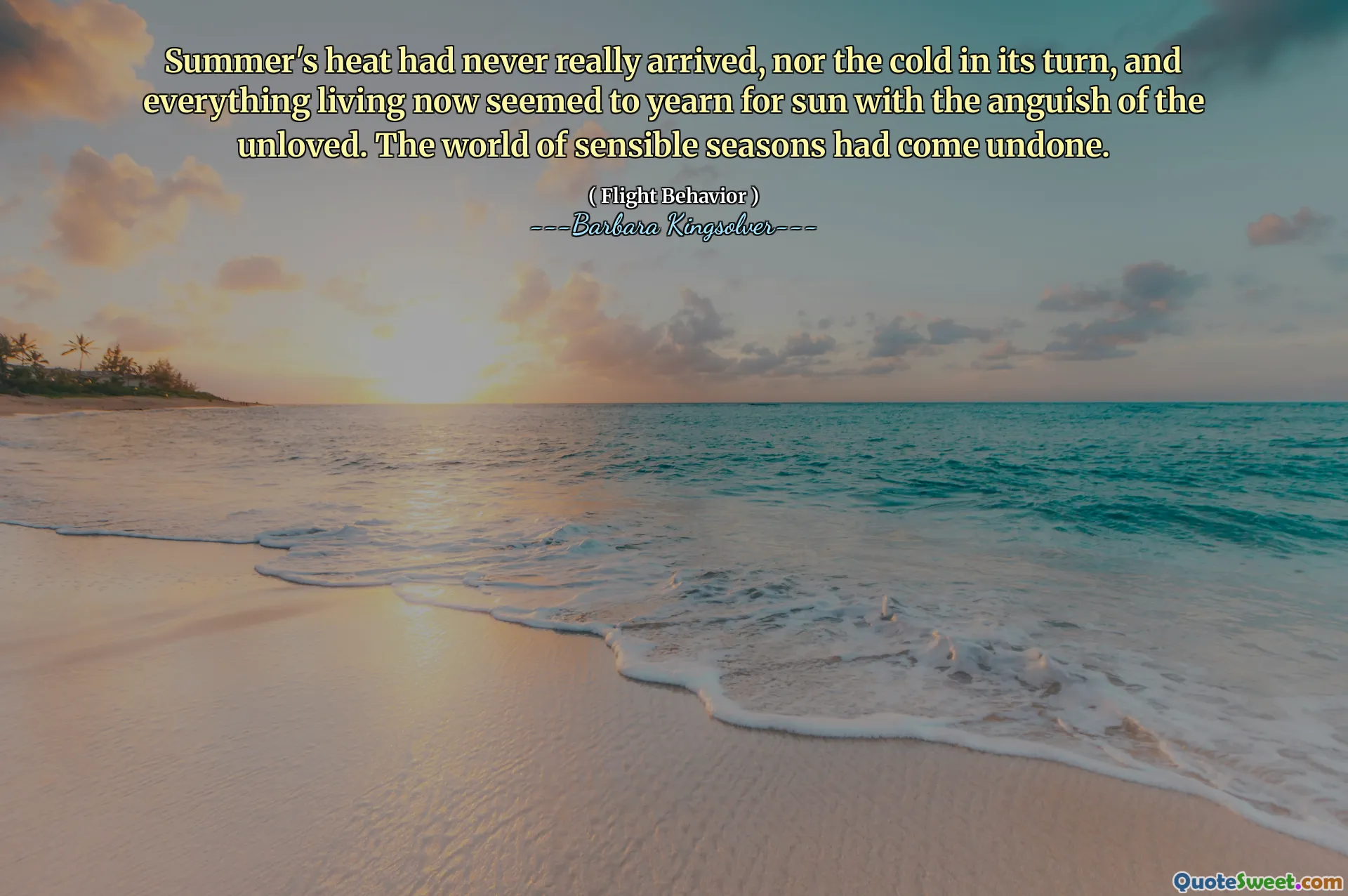
Summer's heat had never really arrived, nor the cold in its turn, and everything living now seemed to yearn for sun with the anguish of the unloved. The world of sensible seasons had come undone.
The imagery in this passage poignantly captures a profound disruption in the natural order, evoking feelings of disquiet and longing. The absence of expected seasonal changes—the lack of true summer heat and the missing cold—symbolizes a world out of balance, hinting at themes of environmental instability. Life, described as yearning 'for sun with the anguish of the unloved,' personifies nature's desperate search for nurturing warmth and stability, much like a neglected being craving affection. This metaphor underlines a poignant connection between the environment and emotional experience, suggesting that the well-being of the living world mirrors human vulnerability.
Moreover, the phrase 'the world of sensible seasons had come undone' encapsulates a loss of predictability and security once taken for granted. It suggests not just a physical alteration in climate but also a metaphorical unraveling of order and harmony, perhaps alluding to broader concerns about climate change and ecological imbalance. This quote is rich with emotional resonance, as it moves beyond meteorological description to encapsulate a collective unease, a deep-seated fear that the rhythms of life are being irrevocably altered.
As a reflection on our current environmental realities, it invites readers to contemplate the consequences of humanity's impact on nature. It emphasizes the intrinsic connection humans share with the natural world and the pain arising when that connection is strained or broken. Ultimately, the quote's melancholic tone urges awareness and care for our planet, highlighting the urgency of preserving the cycles and patterns that sustain all living beings.











